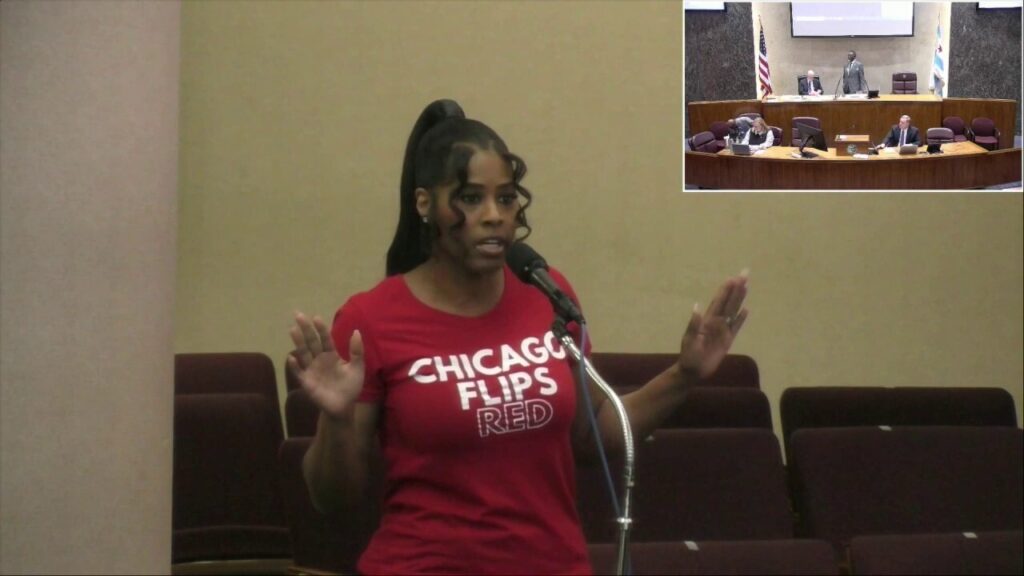In a tense City Council meeting, Chicago Mayor Brandon Johnson finds himself in the crosshairs of public outrage over his administration’s significant financial decisions, particularly regarding the allocation of $574.5 million toward migrant shelters. As the city grapples with a dire $1 billion budget shortfall, many residents are enraged that city resources have been channeled into what they view as an ineffective initiative. Dubbed the “New Arrivals Mission,” this effort began in August 2022 and has led to increased scrutiny on how the city prioritizes its spending and service delivery, especially given the pressing needs of long-standing Chicago residents.
Criticism came to a head during the recent meeting, where attendees expressed their frustrations vocally. Citizens accused Johnson of mismanagement and lacking a clear vision for the city, particularly as he has suggested a property tax hike of $60 million to help offset the budget deficit. One outspoken resident went as far as to declare Johnson the “worst mayor in America,” implying that his policies have neglected the basic needs of Chicagoans in favor of what they see as misguided political priorities. The anguish expressed by residents speaks to a broader frustration over the local government’s handling of migration and financial strains impacting everyday life.
During the confrontational meeting, one resident articulated a radical proposal to tackle the budget crisis: eliminating benefits such as housing, education, and food assistance for undocumented migrants. The speaker contended that such measures could save the city enormous sums, potentially even recovering the $600 million spent on migrant assistance. This callous reductionist perspective reflects a growing belief among some citizens that the city’s fiscal woes stem directly from the support extended to new arrivals instead of focusing on improving conditions for current residents. Additionally, the resident criticized not only the mayor’s salary but also questioned the extensive police presence maintained for Johnson, highlighting a perceived hypocrisy within the Democratic rhetoric on policing and resource allocation.
As tensions peaked during the session, the discussion inevitably turned to the more contentious issue of policing in Chicago. The resident submitted that those advocating for defunding the police should lead by example by reducing their own protective details. Emphasizing the contradiction in Johnson’s policies, she urged that police resources should be diverted back into neighborhoods rather than preserved for the security of high-ranking officials. This sentiment resonated with many present, revealing a deep-seated frustration over the perceived disconnect between the city’s leaders and the everyday realities faced by their constituents.
Faced with public backlash, Johnson’s proposed property tax increase has been met with vehement opposition. Residents, already financially strained, expressed that any increase would only exacerbate their hardships and made clear that voting for such taxes would have electoral repercussions. The palpable anger in the council chamber underscored the urgency of the issues at hand, as citizens conveyed their impression that city leaders are disconnected from the challenges that are increasingly shaping their lives. This meeting remains a stark illustration of the widening chasm between the administration and the populace regarding fiscal responsibility and prioritization of resources.
In summary, the unraveling crisis surrounding Mayor Brandon Johnson’s extensive financial commitment to migrant shelters amid a budget shortfall has ignited significant criticism from Chicago residents. In stark contrast to the administration’s aims, residents express a longing for tangible solutions that prioritize their immediate needs. As the discourse evolves, the mounting pressure on Johnson may compel him to reevaluate his current strategies, if only to avoid further discontent among the electorate that begrudgingly maintains faith in their local government despite experiencing dire financial strains. The ongoing frustration encapsulates a profound sense of urgency as residents demand accountability, transparency, and a shift in focus back toward the pressing needs of long-standing Chicagoans.

